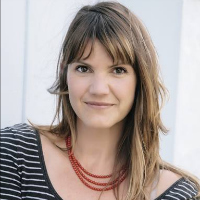Talk to your doctor if you’re under 35 and have been trying to fall pregnant for a year.
On this page
Key takeaways
If you’re over 35, talk to your doctor before trying to get pregnant.
Make sure you understand how your cycle works.
Trying to have a baby might sound like fun, but it isn’t always easy.
You’re born with all of your available eggs, and the amount and quality of your eggs starts to decline after you start your period. Your chance of conceiving naturally starts to decrease in your early 30s. Some people are choosing to freeze their eggs to safeguard their quality.
“For people younger than 35, the general rule is that if you’re not pregnant within a year, you should seek medical advice,” says fertility specialist, Dr Joseph Sgroi. “Those 35 and over should talk to their doctor if they’re planning on conceiving.”
There are some ways to increase the chances of conceiving:
Know your fertility window
Knowing when you’re ovulating can help you time your attempts to get pregnant.
“An egg can only survive for 12 to 24 hours after [ovulation].1 Sperm can survive in the body for [about 5 days] after sex.2 This leaves a small window of opportunity to conceive,” says Dr Sgroi.
You can track your cycle on an app to help you work out when you’re ovulating. Ovulation predictor kits are available over the counter at most pharmacies. These can also help you pinpoint when you’re most fertile.
Optimise your health
If you’re a smoker, now’s the time to quit. Smoking can affect the fertility of both partners3, is linked to an increased chance of miscarriage, and can affect the long-term health of unborn babies4.
Your emotional wellbeing is also important.
“There is growing evidence that excessive stress may play a role in fertility. To help with your emotional health, consider meditation or yoga to learn stress-reduction techniques,” suggests Dr Sgroi. You can also talk to your GP about how to reduce stress.
If you’re experiencing pelvic pain, irregular or heavy periods, talk to your doctor.
Check your weight
“Fertility rates are affected in women who have a high or low BMI,” says Dr Sgroi. “There’s little evidence to show that following a particular diet will increase your chances of getting pregnant quickly. The best thing to do is eat a well-balanced diet, avoid heavy consumption of alcohol and reduce your caffeine intake.”
If you need help reaching your ideal weight, speak to your doctor.
Manage existing conditions
Some pre-existing health conditions can affect your fertility.
“Any existing medical conditions should be discussed with your doctor before pregnancy,” says Dr Sgroi.
“This includes high blood pressure, asthma, diabetes, epilepsy, anaemia, kidney problems, heart or liver disease.”
For musculoskeletal conditions, Dr Sgroi advises, “You may wish to consider physiotherapy, seeing a chiropractor or osteopath if you have a back injury or condition that may affect your pregnancy or the birth of the baby,” says Dr Sgroi.
Gynaecological conditions such as fibroids, polycystic ovarian syndrome, pelvic inflammatory disease, and endometriosis may also affect your chances of conception.5 Speak to your doctor if you have any concerns.
Get your cycle back on track
It can take anywhere from a few weeks to a few months for your cycle to return to normal after stopping hormonal contraception.
“Once you stop taking the pill, your fertility should return almost immediately,” says Dr Sgroi. “This is because the effects of the hormones in the pill aren’t long lasting and your regular menstrual cycle should return. If you used to have a 28-day cycle, this will usually resume after stopping the pill.”
The same should happen after removing the NuvaRing or IUD, whether you’ve used the hormonal or non-hormonal intrauterine device. If you have any concerns about your fertility after coming off contraception, consult your doctor or other qualified health professional.

Self-care starts with a checkup

At Bupa, trust is everything
Our health and wellbeing information is regularly reviewed and maintained by a team of healthcare experts, to ensure its relevancy and accuracy. Everyone's health journey is unique and health outcomes vary from person to person.
This content is not a replacement for personalised and specific medical, healthcare, or other professional advice. If you have concerns about your health, see your doctor or other health professional.
1The Royal Women’s Hospital (2024). Ovulation and conception. The Royal Women’s Hospital.
2Healthdirect (2020). Planning for your pregnancy. Healthdirect.
3Quit (2024). Smoking and fertility. Quit.
4Better Health Channel (2022). Pregnancy and smoking. Victoria State Government, Department of Health.
5Healthdirect (2023). Infertility. Healthdirect.
You might also like...
How to know when you're ovulating
If you’re trying to conceive, you may want to know when you’re ovulating each month. We look at the signs of ovulation and some ways to track your cycle.
9 things you should know before you freeze your eggs
If being a parent is on your long list of priorities and you haven’t met the right person yet, egg freezing may help you buy some time.
12 things to do before getting pregnant
We talked to obstetrician, gynaecologist and fertility specialist Dr Sgroi about things you can do to give you and your baby the healthiest possible start.
3 reasons people are choosing to freeze their eggs
From avoiding panic partnering to putting careers first, we find out why people are banking their eggs to buy more time.





